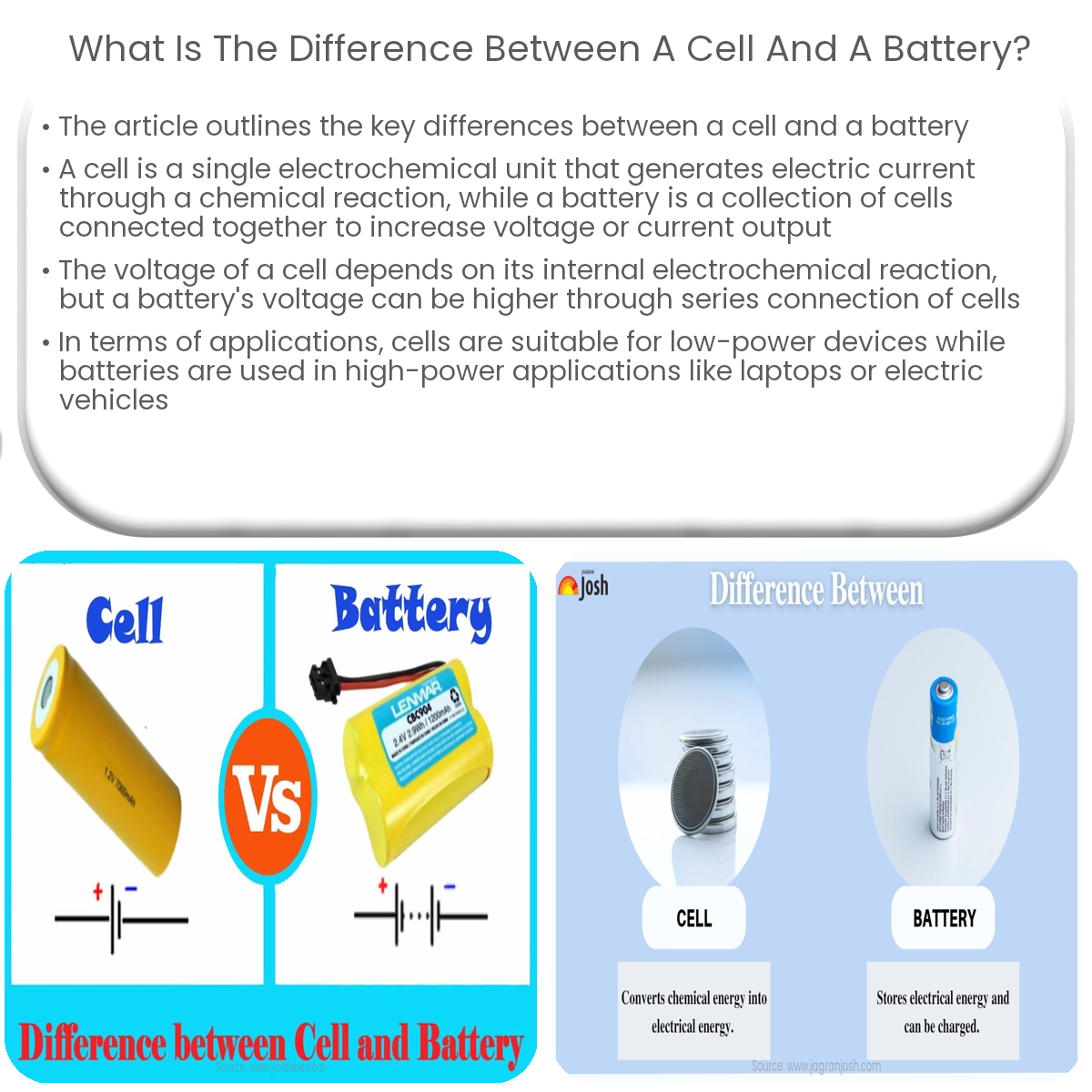A cell is a single electrochemical unit producing electric current, while a battery is a collection of cells connected to increase voltage or current.
Difference Between a Cell and a Battery
A common misconception is that the terms ‘cell’ and ‘battery’ are interchangeable. However, there is a clear distinction between the two. In this article, we will explore the key differences between a cell and a battery, including their structure, functions, and applications.
Cell
A cell is a single electrochemical unit that generates an electric current through a chemical reaction. It consists of two electrodes, the anode (negative) and the cathode (positive), and an electrolyte. The anode and the cathode are immersed in the electrolyte, which allows the movement of ions between the electrodes. When a load is connected across the cell’s terminals, a chemical reaction occurs, creating a flow of electrons and producing an electric current.
Battery
A battery, on the other hand, is a collection of cells connected in series or parallel configurations to increase the overall voltage or current output. The term ‘battery’ was derived from the military term ‘battery of guns’, referring to a grouping of individual components working together. In essence, a battery is a more complex energy storage device compared to a single cell.
Key Differences
- Structure: A cell is a single unit that generates an electric current, while a battery is an assembly of cells working together.
- Voltage: The voltage of a cell depends on the electrochemical reaction occurring within it. A battery can have a higher voltage output by connecting multiple cells in series.
- Current Capacity: A single cell has a limited current capacity. By connecting cells in parallel within a battery, the overall current capacity can be increased.
- Applications: Cells can be used for low-power applications such as wristwatches or remote controls, while batteries are employed in higher-power applications like laptops or electric vehicles.
In summary, the primary difference between a cell and a battery lies in their structure and function. A cell is a single electrochemical unit that produces an electric current, whereas a battery is a collection of cells connected together to achieve a higher voltage or current output. Understanding this distinction is important in various fields, including electronics, energy storage, and electrical engineering.


